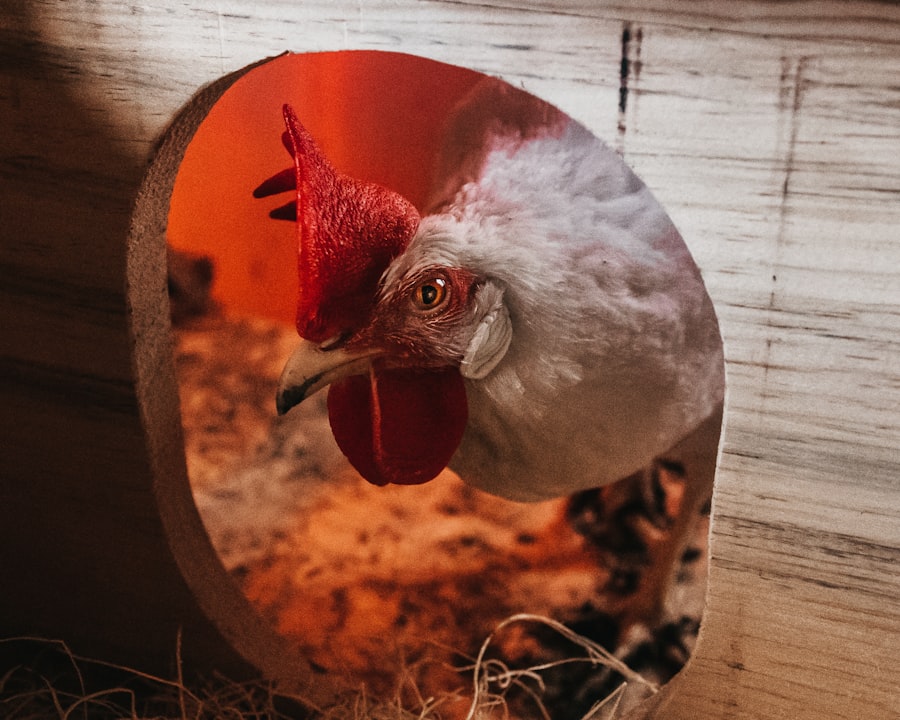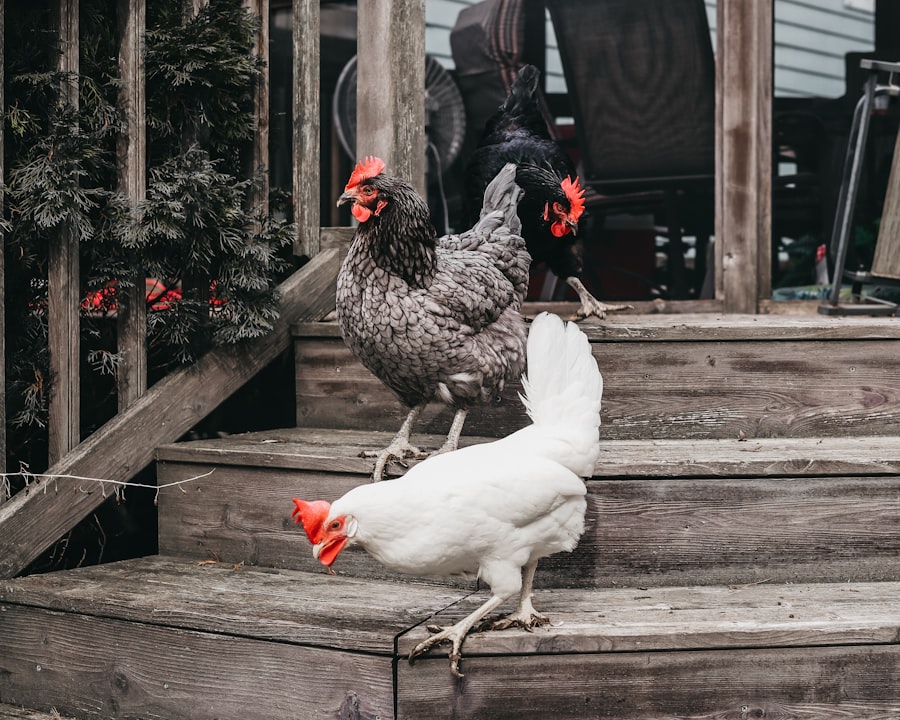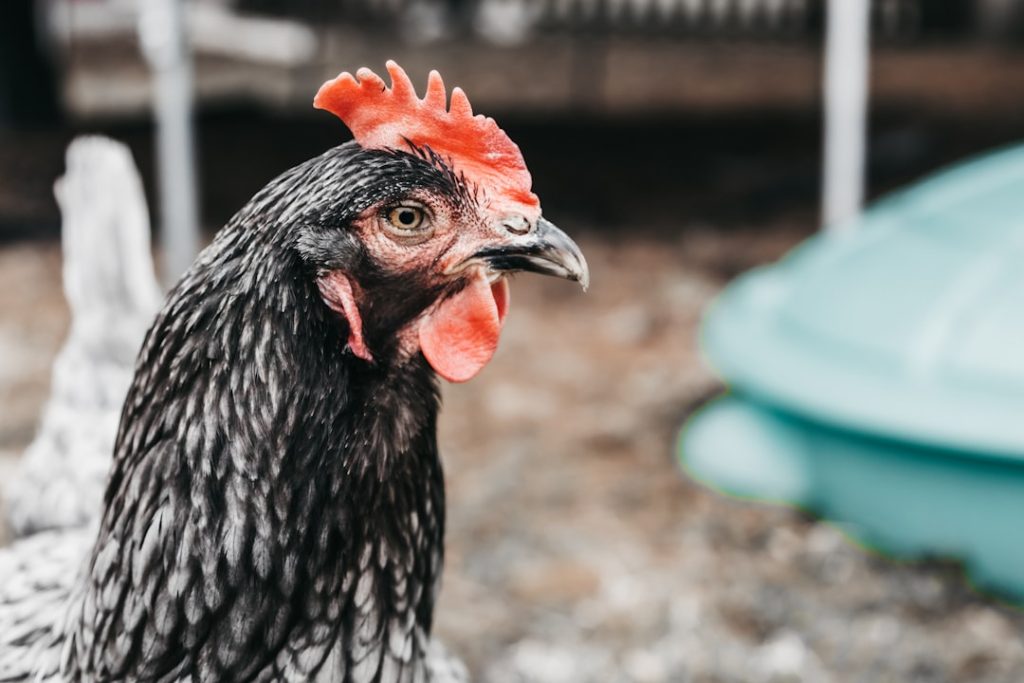Chickens, like all animals, have specific needs that must be met for optimal health, particularly during winter. Understanding these requirements is essential for maintaining a healthy flock. In colder months, chickens need extra care due to their increased vulnerability to low temperatures, frostbite, and other winter-related issues.
Unlike mammals, chickens have limited ability to regulate their body temperature, relying on their environment and human care to stay warm. Winter can also lead to decreased egg production, necessitating additional support for the flock. It’s important to note that cold tolerance varies among chicken breeds.
Some are naturally more cold-hardy and may require less intervention to maintain health during winter. Others may need more protection and care. Flock owners should research the specific needs of their chicken breeds and adjust their care routines accordingly.
By understanding and addressing the winter needs of chickens, owners can ensure their flock remains healthy and comfortable throughout the colder months.
Table of Contents
- 1 Providing Proper Shelter and Protection from the Elements
- 2 Adjusting Feeding and Watering Routines for Winter
- 3 Maintaining Clean and Dry Coop Conditions
- 4 Implementing Safe Heating Solutions
- 5 Monitoring Health and Behavior of Chickens in Winter
- 6 Preparing for Emergencies and Extreme Weather Events
- 7 FAQs
- 7.1 What are the key considerations for keeping chickens in the winter in NYC?
- 7.2 How can I keep my chicken coop warm in the winter?
- 7.3 What should I feed my chickens in the winter?
- 7.4 How can I ensure my chickens have access to water in the winter?
- 7.5 What are some tips for keeping chickens healthy in the winter?
Key Takeaways
- Chickens need extra care in winter to stay healthy and comfortable
- Proper shelter with insulation and ventilation is essential to protect chickens from cold and drafts
- Adjust feeding to provide extra calories and nutrients for warmth and energy
- Keep the coop clean and dry to prevent frostbite and respiratory issues
- Use safe heating solutions like heat lamps or heated waterers, and monitor for any signs of distress or illness
Providing Proper Shelter and Protection from the Elements
Insulating the Coop
A well-constructed coop is essential for keeping chickens safe and warm during the colder months. The coop should be insulated and draft-free, with adequate ventilation to prevent moisture buildup. This will help to keep the chickens warm and dry, reducing the risk of frostbite and other cold-related issues.
Providing Comfortable Roosting Space
It’s important to provide enough space for the chickens to roost comfortably and to ensure that the coop is free from drafts and leaks. This will help to keep the chickens warm and dry, reducing the risk of frostbite and other cold-related issues.
Bedding and Cleaning
In addition to a well-insulated coop, it’s important to provide adequate bedding for the chickens to nest in. Straw or wood shavings are good options for bedding, as they provide insulation and absorb moisture. It’s also important to regularly clean and replace the bedding to prevent the buildup of moisture and bacteria.
Protecting from Harsh Winds
Furthermore, providing a windbreak around the coop can help to protect the chickens from harsh winds and cold temperatures. By providing proper shelter and protection from the elements, you can help your chickens stay warm and healthy during the winter months.
Adjusting Feeding and Watering Routines for Winter

Feeding and watering routines must be adjusted to meet the specific needs of chickens during the winter months. In colder weather, chickens require more energy to stay warm, so it’s important to provide them with a high-quality, balanced diet. This may include increasing their intake of grains and protein-rich foods to help them maintain their body temperature.
Additionally, providing access to fresh greens and vegetables can help to supplement their diet and provide essential nutrients. It’s also important to ensure that chickens have access to clean, unfrozen water at all times. In winter, water sources can freeze quickly, so it’s important to check on them regularly and provide fresh water as needed.
Using heated waterers or adding a small amount of apple cider vinegar to the water can help prevent freezing. Additionally, it’s important to monitor the chickens’ water intake to ensure they are staying hydrated. By adjusting feeding and watering routines for winter, you can help ensure that your chickens are receiving the nutrition and hydration they need to stay healthy during the colder months.
Maintaining Clean and Dry Coop Conditions
Maintaining clean and dry coop conditions is essential for keeping chickens healthy during the winter months. Moisture buildup in the coop can lead to a variety of issues, including frostbite, respiratory problems, and bacterial infections. Regularly cleaning the coop and removing soiled bedding can help prevent these issues from occurring.
Additionally, it’s important to ensure that the coop is well-ventilated to prevent moisture buildup and promote air circulation. In addition to regular cleaning, it’s important to monitor the humidity levels in the coop. High humidity can lead to moisture buildup, while low humidity can cause dryness and respiratory issues.
Using a hygrometer can help you monitor humidity levels and make adjustments as needed. Providing adequate ventilation and using absorbent bedding can help maintain optimal humidity levels in the coop. By maintaining clean and dry coop conditions, you can help prevent common winter-related issues and keep your chickens healthy and comfortable.
Implementing Safe Heating Solutions
In some cases, it may be necessary to implement safe heating solutions in the chicken coop to help keep the chickens warm during the winter months. However, it’s important to use caution when using heating devices, as they can pose fire hazards and other safety risks. If you choose to use a heat source in the coop, it’s important to use a safe, reliable heating device specifically designed for use in a chicken coop.
Additionally, it’s important to follow all manufacturer instructions and safety guidelines when using heating devices. Another option for providing supplemental heat is using heat lamps or radiant heaters. These can provide additional warmth in the coop, but it’s important to use them with caution and ensure they are securely installed to prevent fire hazards.
It’s also important to monitor the temperature in the coop regularly to ensure that it remains within a safe range for the chickens. By implementing safe heating solutions, you can help keep your chickens warm and comfortable during the winter months without compromising their safety.
Monitoring Health and Behavior of Chickens in Winter

Identifying Potential Issues Early On
Monitoring the health and behavior of chickens in winter is crucial for identifying any potential issues early on and providing prompt care. During the winter months, chickens may be more susceptible to respiratory issues, frostbite, and other cold-related problems. It’s important to monitor their behavior closely for any signs of distress or illness, such as lethargy, decreased appetite, or unusual behavior.
Regularly checking for signs of frostbite on their combs, wattles, and feet can help prevent serious health issues from developing. In addition to monitoring their physical health, it’s important to pay attention to their social behavior as well. Chickens may huddle together for warmth during cold weather, so it’s important to ensure that there is enough space for all of them to roost comfortably.
Providing Enrichment and Care
Providing enrichment activities such as hanging treats or toys can help keep them active and engaged during the winter months. By monitoring the health and behavior of your chickens in winter, you can identify any potential issues early on and provide them with the care they need to stay healthy.
Preparing for Emergencies and Extreme Weather Events
Finally, it’s important to prepare for emergencies and extreme weather events that may occur during the winter months. This may include having a backup power source in case of a power outage, stocking up on extra food and supplies in case of a snowstorm or other severe weather event, and having a plan in place for evacuating or relocating your chickens if necessary. Additionally, it’s important to have a first aid kit on hand with supplies for treating common winter-related issues such as frostbite or respiratory problems.
It’s also important to have a plan in place for keeping your chickens safe during extreme weather events such as blizzards or ice storms. This may include reinforcing the coop or providing additional insulation to keep them warm and protected from harsh weather conditions. By preparing for emergencies and extreme weather events, you can help ensure the safety and well-being of your chickens during the winter months.
In conclusion, caring for chickens in winter requires special attention and consideration to ensure their health and well-being during the colder months. By understanding their specific needs, providing proper shelter and protection from the elements, adjusting feeding and watering routines, maintaining clean and dry coop conditions, implementing safe heating solutions, monitoring their health and behavior, and preparing for emergencies and extreme weather events, you can help your chickens thrive during the winter months. With proper care and attention, your flock can stay healthy and happy throughout the winter season.
If you’re looking for tips on how to keep chickens warm in the winter in NYC, you might also be interested in this article on choosing the right heater for a chicken coop. This article offers valuable insights on how to ensure your chickens stay cozy and comfortable during the colder months.
FAQs
What are the key considerations for keeping chickens in the winter in NYC?
In NYC, it’s important to consider the cold temperatures, limited daylight hours, and potential for snow and ice when keeping chickens in the winter.
How can I keep my chicken coop warm in the winter?
To keep your chicken coop warm in the winter, you can insulate the coop, use a heat lamp or heater (if safe and appropriate), and provide plenty of bedding for the chickens to nestle in.
What should I feed my chickens in the winter?
In the winter, it’s important to provide your chickens with a balanced diet that includes plenty of protein and nutrients to help them stay healthy and maintain their body heat. This may include a mix of commercial feed, grains, and kitchen scraps.
How can I ensure my chickens have access to water in the winter?
To ensure your chickens have access to water in the winter, you can use heated waterers or regularly check and replace frozen water to prevent dehydration.
What are some tips for keeping chickens healthy in the winter?
To keep chickens healthy in the winter, it’s important to provide a clean and dry living environment, monitor for signs of illness, and ensure they have access to proper nutrition and water. Additionally, providing opportunities for exercise and sunlight can help maintain their overall well-being.
Meet Walter, the feathered-friend fanatic of Florida! Nestled in the sunshine state, Walter struts through life with his feathered companions, clucking his way to happiness. With a coop that’s fancier than a five-star hotel, he’s the Don Juan of the chicken world. When he’s not teaching his hens to do the cha-cha, you’ll find him in a heated debate with his prized rooster, Sir Clucks-a-Lot. Walter’s poultry passion is no yolk; he’s the sunny-side-up guy you never knew you needed in your flock of friends!







